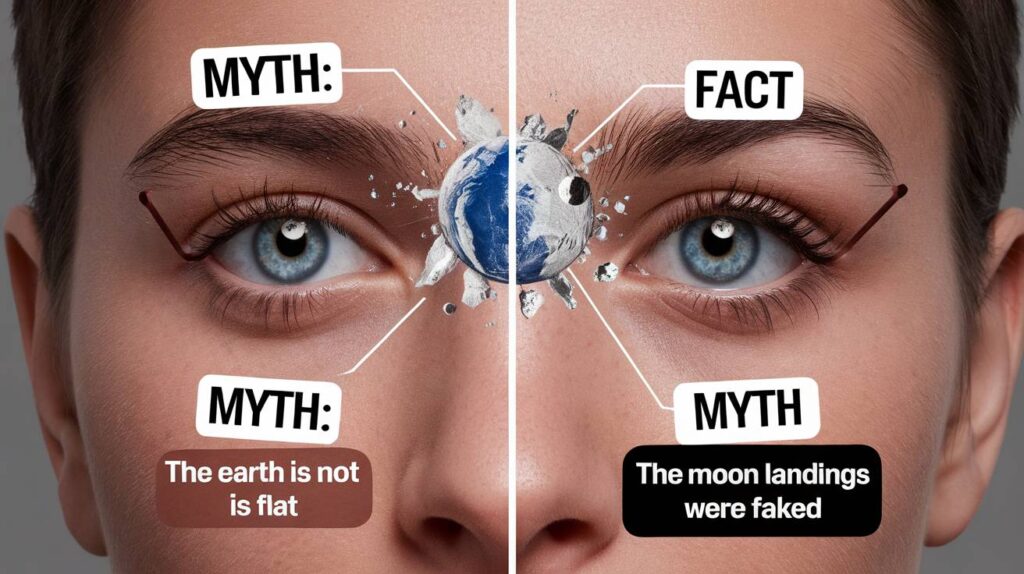Ever wished there were more hours in a day to chase your dreams or tick off that ever-growing to-do list? What if tweaking your sleep could be the secret to unlocking extra time without sacrificing rest? Welcome to the intriguing world of polyphasic sleep—a game-changing approach that’s turning traditional sleep patterns on its head. Let’s dive into how breaking up your slumber might just revolutionize your life.
Key Takeaways
- Understanding Polyphasic Sleep: It’s all about splitting your sleep into multiple sessions over 24 hours instead of one long stretch.
- Various Schedules to Choose From: Options like Everyman, Dymaxion, Uberman, and Biphasic offer different combinations of main sleep and naps.
- Potential Benefits: Increased productivity, sharper mental focus, and enhanced creativity are reported perks.
- Challenges Exist: Adapting can be tough, and maintaining strict schedules may conflict with daily obligations.
- Establishing a Routine: Gradual adjustments, consistency, and listening to your body are key.
- Myths Debunked: Polyphasic sleep isn’t inherently unhealthy nor reserved for extreme lifestyles.
- Health Impacts: When done right, it can positively affect physical energy and mental well-being.
- Who Should Consider It: Ideal for those with irregular schedules, productivity seekers, and busy parents.
Peeking into Polyphasic Sleep
What’s Polyphasic Sleep About?
Polyphasic sleep isn’t your grandma’s nap schedule; it’s about squeezing in multiple snooze sessions within a day. Forget the straight-through snooze fest you usually call a night’s sleep. Polyphasic sleeper folks break their slumber into shorter chunks, helping you stay sharp and maybe catch some extra awake time without feeling like a zombie.
“Embracing polyphasic sleep can unlock untapped potential in productivity and creativity.” — Sleep Enthusiasts
Imagine dozing on and off for about three to six hours, spread over 24 hours — it’s a juggling act of main sleep and power naps. This isn’t for the faint-hearted or anyone with a strict nine-to-five. It suits those living the hustle and bustle life or juggling oddball work hours.

Here’s a sneak peek at how different polyphasic sleep schedules shake out:
| Schedule Type | Total Sleep Duration | Main Sleep | Naps |
|---|---|---|---|
| Everyman | 4.5 – 6.5 hours | 3 hours | 3 naps of 20-30 minutes |
| Dymaxion | 2 – 3 hours | None | 4 naps of 30 minutes |
| Uberman | 2 – 3 hours | None | 6 naps of 20 minutes |
| Biphasic | 5 – 6 hours | 3-4 hours | 1-2 naps of 20-90 minutes |
Pick Your Polyphasic Poison
Now let’s chew over the types of polyphasic sleep plans. They ain’t one-size-fits-all; each has its nap count and total shuteye-to-dream ratio.
- Everyman: This one’s got a long snooze session plus a few extra naps—you can tweak it to fit your weird life.
- Dymaxion: It’s the all-naps, no-sleep type; think hardcore—we’re talking about the bold and brave.
- Uberman: Six catnaps on the dot, no dilly-dallying allowed.
- Biphasic: It’s like hitting pause with a solid sleep and throwing in a nap chaser or two.
Thinking about jumping on the polyphasic bandwagon? Really think about your lifestyle, commitments, and how you catch Zs already. Changing how you sleep takes some grit, patience, and knowing how your body ticks. Need more tips? Check out our piece on sleep hygiene. Getting a consistent sleep schedule down could be your golden ticket to managing all your sleep-ins.
While you’re at it, why not sample some relaxation magic like the 4-7-8 breathing technique? It’s a good crash course before diving head-first into polyphasic territory. Having some bedtime rituals up your sleeve might help you slide easily into these new sleep patterns. More into getting those afternoon dozes spot on? Our bit on power naps might complement your polyphasic journey for top-notch wakefulness.
Benefits of Polyphasic Sleep
Polyphasic sleep, where folks snooze in bits and pieces over 24 hours, might just jazz up your everyday grind. Below’s a look at some perks that could tickle the fancy of health buffs, busy bee parents, and those pulling late shifts.

Boosted Get-Up-and-Go
People dive into polyphasic sleep schedules and often shout from the rooftops about their spurt in productivity. Chopping up sleep lets them pack in more awake time. This means power-packed work sessions with breaks to ease up.
| Polyphasic Sleep Routine | Total Sleep Time | Daylight Action Time |
|---|---|---|
| Everyman Plan | 4.5 – 6 hours | 18 – 19.5 hours |
| Uberman Plan | 2 – 3 hours | 21 – 22 hours |
| Dymaxion Plan | 2 hours | 22 hours |
These routines hint at how you can wiggle in more time each day to juggle chores and dreams.
Sharper Perception
Many notice their mental acuity gets a leg up with polyphasic sleep. Shorter snooze stretches mean more light sleep, translating to razor-sharp focus. This is a godsend for students hitting the books or professionals crunching numbers.
Studies have pointed out sleep’s starring role in memory and problem-solving. Tweaking sleep habits might just amp up performance in brain-draining tasks.
Juiced-Up Imagination
A fresh mind spins gold! Polyphasic sleep might crank up creativity by letting those ‘aha’ moments creep in more often. Many artists, writers, and inventors swear reshuffling their sleep molds their masterpiece-making.
With extra hours to mull over or kick back, there’s room for those brainwaves to break free. Activities like checking out chill-out apps for sleep or improving fitness and shut-eye can give creative juices a nudge.
Polyphasic sleep holds these potential goodies, making it worth a whirl for folks keen on pumping up their day-to-day groove. For more on getting a good night’s rest, give a peek at good sleep practices and keeping sleep on track.

Challenges of Polyphasic Sleep
Though polyphasic sleep might seem like a snazzy way to shake things up on the dream front, it’s not without a few hiccups. Let’s unwrap these hurdles so anyone eyeing this sleep style knows what to expect.
Transitioning to polyphasic sleep requires dedication and isn’t suitable for everyone.” — Sleep Experts
Adaptation Period
Switching to a polyphasic sleep pattern isn’t a walk in the park. There’s a getting-used-to-it stage that can stretch from a handful of days to several weeks. During this time, you’ll likely feel more zombie than a human, with fatigue, crankiness, and brain fog becoming your new norm.
| Getting Used To It | How Long It Takes | What You’ll Feel |
|---|---|---|
| Starting Phase | 3-7 days | Tired as heck, grumpy vibes |
| Settling in | 1-3 weeks | More alert, productivity kicking up |
In this gritty adaptation phase, clinging to good habits is your best friend. Check our handy piece on sleep hygiene for tips to stick through. A consistent bedtime ritual can be your secret weapon.
Scheduling Constraints
Polyphasic sleep doesn’t mesh easily with the chaos of daily life. Unlike grabbing a solid block of Zs, polyphasic routines demand clockwork precision for snoozes. For those juggling busy jobs, caring for kids, or trying to keep a social life afloat, this can be a real puzzle.
Sticking to a regular schedule is the name of the game. If your naps and sleep sessions know what’s coming, your shut-eye gets a whole lot sweeter. Here’s a glance at some common polyphasic schedules:
| Kind of Schedule | Total Shutdown Time | Nap Number | Best For |
|---|---|---|---|
| Everyman | 4-5 hours | 3 catnaps | Folks with flexible gigs |
| Uberman | 2-3 hours | 6 siestas | Those who adapt like a rubber band |
| Dymaxion | 2-3 hours | 4 naps | Hyper-efficient goal-getters |
For the ones wrestling with a jumbled sleep routine, tools like sleep journals can become your go-to allies. Tackling polyphasic sleep needs grit, but with the right tricks, you’re bound to make it work.
Establishing a Polyphasic Sleep Routine
Starting a polyphasic sleep adventure takes a little planning and a few tweaks to your usual snooze habits. Getting into this way of sleeping smoothly needs some kind of plan.

Transition Tips
Shifting to polyphasic sleeping isn’t a walk in the park, but here are some handy hints to make it feel more like a stroll:
- Start Gradually: Don’t pull a full switcheroo overnight—ease in by slowly cutting back sleep time to get your body in the groove.
- Listen to Your Body: Your body’s the boss here—if you’re feeling like a sleep-deprived zombie, might be a sign to go back to the old ways for a bit.
- Utilize Power Naps: Sprinkle short naps throughout your day. Research says a good 20-30-minute nap can make you sharper and cheerier. We’ve got the scoop on naps in our power naps article.
- Stay Consistent: Keep bedtime and rising time steady as a rock—this helps your body catch on to the new sleep rhythm.
- Consider Evening Habits: Steer clear of caffeine and your gadgets before you hit the hay. Our guide on evening habits for better sleep might just help you out.
Creating a Consistent Schedule
Getting a steady schedule is a must for this whole polyphasic sleep thing. Here’s a peek at some popular schedules with their sleep times:
| Schedule Type | Total Sleep Time | Main Sleep Duration | Nap Duration | Nap Frequency |
|---|---|---|---|---|
| Uberman | 2-3 hours | N/A | 20 minutes | 6-8 times |
| Everyman | 4-5 hours | 3 hours | 20-30 minutes | 3 times |
| Dymaxion | 2 hours | N/A | 30 minutes | 4 times |
Alarms and apps are lifesavers for keeping you on your snooze schedule. A sleep journal is also your friend for keeping tabs and making tweaks. Curious about tracking those z’s? Our sleep journaling article has some nifty tips.
Chill-out techniques like our 4-7-8 breathing trick can help with the shift. After some time, people get the hang of polyphasic sleep—upping productivity and brightening daily life.
Mastering a polyphasic sleep routine takes patience and tuning into what your body whispers. Stick to gradual shifts and listen to your body’s cues for the best path forward. This route can really help those wrestling with sleep woes or juggling chaotic schedules. Want more tips on keeping your sleep spic and span? Dive into our sleep hygiene article for more.
Polyphasic Sleep Myths Busted
Let’s tackle some of the misconceptions buzzing around about polyphasic sleep. Two big myths need some truth serum, so let’s clear things up.
Myth: Polyphasic Sleep is Bad for You
Many folks think polyphasic sleep will jack up your health. This idea often comes from fear of not getting enough rest and missing out on those deep snoozes. But done right, polyphasic sleep can slot nicely into good sleep habits.
Check out Table 1 to see how traditional sleep and polyphasic sleep compare.
| Sleep Type | Average Duration | Sleep Stages | Health Expectancies |
|---|---|---|---|
| Monophasic Sleep | 7-9 hours | Multiple cycles | Might rack up sleep debt if erratic |
| Polyphasic Sleep | 4-6 hours | Short, frequent naps | Can boost alertness and work output |
For those who nail down their sleeping schedules, polyphasic sleep could lead to feeling more awake and full of beans. Tips on keeping your z’s in check can be found in consistent sleep schedules and healthy sleep habits.
Myth: Polyphasic Sleep is Only for the Hardcore
Some folks think polyphasic sleep is just for people in super-tough spots like astronauts or night-shift workers. Actually, anyone aiming to up their productivity game can give this a shot.
Anyone with wacky schedules—like parents or those looking to amp up their health habits—might find polyphasic sleep a handy tool. The table below shows some groups that could benefit from this method.
| Target Group | Possible Perks |
|---|---|
| Shift Workers | Adjusts better to whacky hours |
| Parents | More chances for some me-time |
| Health Buffs | Boosts concentration and performance |
| Seniors | Tackles changing sleep rhythms |
When we bust these myths wide open, it’s clear polyphasic sleep can work for various folks looking to upgrade their sleep patterns and daily life. For tips on setting up a winning pre-sleep routine, check out bedtime rituals and learn more about a pre-sleep routine.
Polyphasic Sleep and Health
Polyphasic sleep has caught some eyes for how it might mix things up with your health. Here, we’ll see what this sleep style means for both your body and mind.
Impact on Physical Health
Swapping over to a polyphasic sleep pattern can bounce your physical health around a bit. People’s stories might differ, but let’s chew on the common bits so you can figure out if it’s your cup of tea.
| Physical Health Aspect | Potential Impact |
|---|---|
| Sleep Quality | Might get a thumbs-up with set nap times. |
| Energy Levels | Goes up with those quick snooze breaks. |
| Metabolism | May push you to be more alert and on your toes. |
| Heart Health | Regular sleep might chill out your stress. |
Putting naps front and center in your day with polyphasic sleep could let you hit the hay better each night. If you tweak your schedule just right, you might feel like you’ve got endless caffeine-free energy, ready to tackle whatever your day throws at you. Those wanting to snooze better should scope out healthy sleep habits and a good pre-sleep routine.
Mental Well-being Benefits
Polyphasic sleep doesn’t just play nice with your body, but it gives your mind a little nudge too. Folks have found perks in how they feel mentally.
| Mental Well-being Aspect | Potential Impact |
|---|---|
| Focus and Concentration | Can beef up with those handy naps. |
| Mood Stability | Could brighten up with a steady snooze schedule. |
| Creativity | More awake hours could spark your genius. |
| Stress Reduction | Regulated naps might just calm your nerves. |
Lots of people say being awake more makes them get more done, like having extra hours in a day. You might find yourself bursting with new ideas or just feeling more on top of life. Looking to give your mental health a leg-up? Check out things like the 4-7-8 breathing technique or try out meditation apps for sleep.
In short, polyphasic sleep spins a web between how you sleep and feel. If you’re struggling to keep a regular sleep schedule or trying to squeeze more focus out of your day, polyphasic sleep might just be the ticket to better health and feeling great.
Who Should Consider Polyphasic Sleep?
Polyphasic sleep might just be the golden ticket for those itching to shake up their sleep routine and crank up daily efficiency. There are certain folks who might find themselves especially drawn to this sleep style, and we’re here to shine a light on them.
Individuals with All-Over-the-Place Schedules
If you’re someone whose work or daily duties scatter your sleep routine all over town, polyphasic sleep could be your ticket to a more manageable lifestyle. Shift workers, for example, often face the zen-like challenge of maintaining a steady sleep schedule. With polyphasic sleep, they can slice their rest into smaller, spread-out chunks over the day. This way, they stay sharp on the job and still bank that necessary shut-eye.
| The balance between doing stuff and downtime | Time | Perks |
|---|---|---|
| Everyman Routine | Total: 4.5 hours Main Snooze: 3 hours Mini Naps: 3 x 20 min | Balance between doing stuff and downtime |
| Uberman Routine | Total: 2-3 hours Naps: 6 x 20 min | Max hours awake |
Folks Wanting to Amp Up Focus and Get Stuff Done
If you’re hunting for ways to pump up your productivity and concentration, polyphasic sleep might be your jam. This method sharpens your noggin’, letting you dig into work without getting sidetracked. Those tiny, frequent naps can crank up alertness and help you make better calls during the day.
| Perks | Impact on Work |
|---|---|
| Laser-like concentration | Better stick-to-it-iveness |
| Creative juice boost | More time for idea-surfing |
| Energizer-bunny levels | Longer periods of get-up-and-go |
Parents Taming the Chaos
Parents? We see you juggling those bazillion tasks, and bedtime can often be a hodgepodge of chaos. Here comes polyphasic sleep with a saving hack to pull the most out of your restful moments and still be on your game for your kiddos. By squeezing in quick catnaps, whether day or night, you can recharge and tackle the day’s hurdles refreshed.
| Parent Nap Plan | Example Naps | Rest Duration |
|---|---|---|
| Main Sleep After Sundown | 3-4 hours | Night (post-kiddo zzz’s) |
| Quick Recharge | 20-30 min | Afternoon (when the tiny humans nap) |
Giving polyphasic sleep a whirl can help those wrestling with erratic sleep, health buffs, and bleary-eyed parents find a sweet spot to freshen up their overall sleep game. And if you’re curious about how to make your sleep space a dreamy haven, hop over to our piece on healthy sleep habits.
Final Thoughts on Polyphasic Sleep
Trying Out New Sleep Patterns
Polyphasic sleep is like a breath of fresh air for those wanting to squeeze more out of their day and get stuff done. It flips the usual sleeping pattern on its head, offering various ways to catch some Zs that might better suit different lifestyles. Folks dealing with sleep problems, health nuts, and super busy parents might find this sleep style a ticket to feeling more rested and refreshed.
Switching to a polyphasic sleep schedule isn’t just a walk in the park. You’ll need some effort and flexibility. At first, it might be a bit rough, so having a supportive crew around and brushing up on good sleep habits can help. People can figure out how to get their sleep in line with their lives and what they gotta do each day. For more handy tips on sleeping well, check out our piece on sleep hygiene.
Getting into polyphasic sleep is smoother with some before-bed habits. Doing stuff that helps you unwind can seriously boost how well you sleep. Simple practices like bedtime routines or trying out the 4-7-8 breathing technique can set you up for a good night’s rest.
| Polyphasic Sleep Schedule | Core Sleep Duration | Nap Duration | Total Sleep |
|---|---|---|---|
| Everyman | 3-4 hours | 20-30 minutes (3 times) | 5-6 hours |
| Uberman | 2-3 hours | 20-30 minutes (6 times) | 4-6 hours |
| Dymaxion | 2 hours | 30 minutes (4 times) | 4 hours |
Knowing your body clock and syncing your snooze times can make the change less bumpy. For those wanting to reset their inner alarm, peek at our article on circadian rhythm reset to get some useful tricks.
Keeping a close watch on your sleep debt is a good practice while managing your sleep routine. Tools like sleep journals and top sleep trackers might offer some extra help for tracking and tweaking how you sleep.
Polyphasic snooze plans don’t just crank up productivity; they might also sharpen your mind and boost creativity. As you get comfy with a new sleep setup, you’ll likely find your thinking clearer and your focus more precise. Interested in sharpening your focus and getting more done? Check out beginner sleep-improving routines for ideas.
If the polyphasic idea catches your eye, it’s good to remember it might not be everyone’s cup of tea. Snagging some quick naps and sticking to a solid evening routine can be game-changers steps in your quest for better sleep. Need a guide on getting a good evening setup? Don’t forget to look at our evening habits for better sleep.
Jumping into different sleep patterns can be a game-changer. By trying polyphasic sleuthing and pairing it with the right tips and tricks, folks might just find a burst of energy and better productivity, taking a step toward a healthier, livelier self.
Conclusion
Embracing polyphasic sleep might be the bold move that transforms your daily routine. While it’s not a one-size-fits-all solution, it offers a unique opportunity to reclaim hours you didn’t know you had. By listening to your body and committing to consistency, you could unlock heightened productivity, sharper focus, and a better balance between work and personal life. If you’re ready to challenge the conventional and explore new horizons in rest and efficiency, polyphasic sleep could be your next great adventure. After all, redefining how we sleep might just help us redefine how we live.
FAQs
What is Polyphasic Sleep?
Polyphasic sleep is a sleep pattern where you divide your total sleep time into multiple sessions throughout the day instead of one long period at night.
Is Polyphasic Sleep Healthy?
When implemented properly, polyphasic sleep can be healthy. It requires careful planning to ensure you get sufficient restful sleep overall.
Who Can Benefit from Polyphasic Sleep?
Individuals with irregular schedules, shift workers, busy parents, or those seeking increased productivity and focus may benefit from polyphasic sleep.
How Do I Start a Polyphasic Sleep Schedule?
Begin by gradually adjusting your sleep times, incorporating short naps, maintaining a consistent schedule, and paying attention to your body’s responses.
What Are the Challenges of Polyphasic Sleep?
Challenges include a difficult adaptation period, strict scheduling requirements, and potential conflicts with social and professional commitments.
Resources
- National Sleep Foundation: Monophasic vs. Polyphasic Sleep
- Healthline: Polyphasic Sleep: Benefits and Risks
- Mayo Clinic: Sleep Schedules and Health








